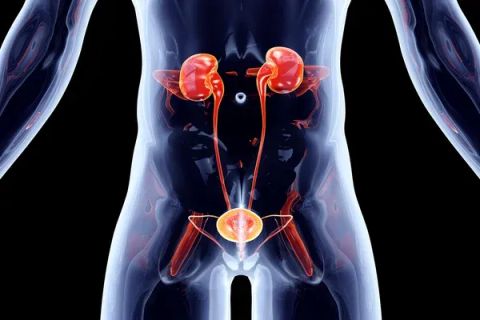Health Data Analytics Explained: Discover Information, Tips & Expert Advice
Health data analytics refers to the systematic process of collecting, interpreting, and extracting insights from medical and health-related information. This can include electronic health records, diagnostic reports, imaging results, genetic data, wearable device information, and public health statistics. The core purpose of health data analytics is to turn raw information into meaningful knowledge that supports better decisions in healthcare environments.
This field emerged as medical systems transformed from paper-based workflows to digital platforms. As hospitals, clinics, laboratories, and research institutions began generating large volumes of structured and unstructured information, the need for organized data interpretation became essential. Today, health data analytics supports activities such as trend identification, early detection patterns, quality improvement, patient outcome evaluation, and measuring the effectiveness of medical interventions.
The growth of digital health, telehealth platforms, wearable devices, and cloud-based hospital information systems has expanded the volume of available health information. Because of this expansion, analytics techniques—including descriptive analytics, predictive modelling, artificial intelligence algorithms, and population health dashboards—play a central role in understanding the connections between clinical conditions, lifestyle patterns, demographics, and environmental influences.
Health data analytics exists not only to interpret information but also to make it accessible and usable for clinicians, researchers, policymakers, and hospitals. Whether the goal is examining long-term medical patterns or optimizing workflows inside a healthcare system, analytics provides a structured foundation for informed reasoning.
Importance: Why Health Data Analytics Matters Today
Health data analytics has become essential in modern healthcare, affecting a wide range of people including patients, doctors, public health agencies, researchers, and health administrators. It matters for several reasons:
Better Understanding of Health Trends
Analytics helps identify patterns in chronic diseases, infectious outbreaks, treatment responses, and population-level health markers. This supports planning, prevention, and early interventions.
Improved Clinical Decision Support
By examining medical histories and diagnostic patterns, analytics assists clinicians in evaluating risks, predicting complications, and selecting suitable care pathways. Predictive analytics, clinical data interpretation, and risk modeling offer insights that reduce uncertainty.
Enhanced Quality and Safety
Analytics highlights which procedures work well, where delays occur, and how patient experiences can improve. Tracking quality metrics enables hospitals to evaluate performance in areas like medication accuracy, discharge planning, and readmission rates.
Population Health Benefits
Public health organizations use analytics to monitor disease transmission, vaccination responses, community-level risks, and environmental health indicators. These insights guide planning, resource allocation, and awareness programs.
Resource Optimization in Health Systems
Large datasets help organizations identify bottlenecks, manage inventory, optimize diagnostic scheduling, and improve staffing efficiency. Analytics supports consistent, standardized, and evidence-based practices.
Supporting Medical Research and Innovation
Clinical researchers rely on structured data to test hypotheses, evaluate interventions, and validate new treatment approaches. Big data in healthcare and computational health models are creating new opportunities in epidemiology and medical discoveries.
Informed Policy and Planning
Government agencies and health departments use analytics to design guidelines, predict public health demands, and evaluate national health programs.
The importance of health data analytics continues to grow as the world shifts toward digital health ecosystems, precision medicine, and long-term wellness management.
Recent Updates: Trends, Improvements, and News (Past Year)
Health data analytics has experienced noticeable advancements over the past year, influenced by new technologies, health policies, and digital adoption trends.
AI-Driven Medical Insights (2024–2025)
Throughout 2024, many health systems expanded the use of artificial intelligence for clinical decision support. AI models were increasingly used to analyze imaging results, identify early signs of chronic conditions, and detect risk patterns. In early 2025, several research institutions published findings on large-scale predictive analytics models used in population health management.
Growth of Wearable Health Data (2024)
From mid-2024, wearable device adoption increased worldwide, generating continuous streams of cardiovascular, sleep, and activity data. Analytics tools advanced to interpret this data for lifestyle monitoring and preventive insights.
Electronic Health Record Optimization (Late 2024)
Hospitals began upgrading their electronic health record systems to include advanced tracking dashboards, improved interoperability, and better visualization tools. These changes enhanced data accessibility and reduced documentation errors.
Improved Public Health Surveillance (2024–2025)
Following global health planning updates in 2024, many countries enhanced real-time monitoring systems for infectious diseases. These systems use analytics to track outbreaks and evaluate vaccination impact.
Data Standardization Efforts (2024)
Several international health organizations worked on standards for data security, sharing protocols, and coding frameworks to ensure consistent information exchange across institutions.
These recent updates highlight a shift toward smarter, more connected health systems where analytics supports both everyday care and long-term planning.
Laws or Policies: Regulations Affecting Health Data Analytics
Health data analytics is strongly shaped by policies that govern privacy, information sharing, and digital system usage. While regulations vary by country, most regions follow similar principles focused on protecting medical information and ensuring secure data handling.
Common regulatory themes include:
Privacy and Confidentiality Rules
Most countries enforce strict laws that regulate how patient information can be collected, stored, shared, or analyzed. These rules typically require secure encryption, access controls, and clear patient consent procedures.
Electronic Health Record Standards
Governments often provide guidelines for hospital information systems, data formats, digital signatures, and interoperability. These standards ensure that different healthcare organizations can exchange data safely and consistently.
Data Accuracy and Quality Requirements
Healthcare institutions are responsible for maintaining reliable, complete, and traceable records. Regulations encourage standardized coding systems, validated data entry methods, and quality audits.
Public Health Reporting Guidelines
National health agencies issue rules for reporting infectious diseases, vaccination numbers, environmental risks, and other public health indicators. Analytics depends heavily on compliance with these reporting standards.
AI and Digital Health Policy Updates
Many countries are introducing frameworks for responsible use of artificial intelligence in medical settings. These guidelines focus on transparency, fairness, risk evaluation, and ethical use of automated systems.
These laws and policies ensure that health data analytics operates in a safe, ethical, and accountable environment that protects individuals while supporting scientific progress.
Tools and Resources: Helpful Solutions for Health Data Analytics
A variety of tools, platforms, and resources assist professionals in understanding and working with health-related data. These tools support data visualization, statistical modelling, predictive analytics, and collaborative reporting.
Popular Analytical Platforms
-
Electronic health record dashboards
-
Data visualization tools
-
Statistical analysis software
-
Health information exchange systems
-
Population health reporting tools
Useful Online Resources
-
National health statistics portals
-
Public health monitoring websites
-
Medical research databases
-
Global health data repositories
-
Healthcare quality measurement frameworks
Educational Resources
-
Courses on health information management
-
Tutorials on predictive analytics in healthcare
-
Workshops on medical data interpretation
-
Online libraries for epidemiology and research methods
These tools provide structured ways to explore large datasets, interpret complex medical patterns, and gain insights that guide research and decision-making.
FAQs
What types of data are used in health data analytics?
Health data analytics uses information such as electronic health records, diagnostic reports, lab test results, imaging data, wearable device information, public health records, and environmental indicators. These datasets support quality improvement, research activities, and population health analysis.
How does predictive analytics benefit healthcare?
Predictive analytics identifies risk patterns, forecasts potential complications, and supports early interventions. This improves planning, resource allocation, and evaluation of long-term health trends.
Is health data analytics only for large hospitals?
No. Although large organizations generate more information, analytics can be applied in clinics, laboratories, community health programs, and public health departments. The purpose is to interpret patterns, regardless of organization size.
How is patient privacy protected in health data analytics?
Privacy is maintained through encryption, access controls, secure storage, identification masking, and compliance with national laws on medical information protection. These rules ensure responsible handling of sensitive health data.
What skills are useful in understanding health analytics?
Knowledge of data interpretation, statistics, digital health systems, information management, and visualization tools is helpful. Analytical reasoning and familiarity with health terminology also support effective understanding.
Conclusion
Health data analytics plays an increasingly important role in modern healthcare by turning complex information into meaningful insights. It helps monitor medical trends, identify patterns, improve decision-making, and support both clinical care and public health planning. With recent advancements in digital health, wearable technology, AI-based systems, and electronic health records, analytics continues to expand its influence across hospitals, research institutions, and government agencies.
Laws and policies ensure that data is protected, standardized, and responsibly used. Tools and resources make analytics more accessible and understandable to a wide range of users. As medical systems evolve, the ability to interpret information remains essential for improving outcomes, strengthening public health strategies, and supporting long-term wellness goals.





